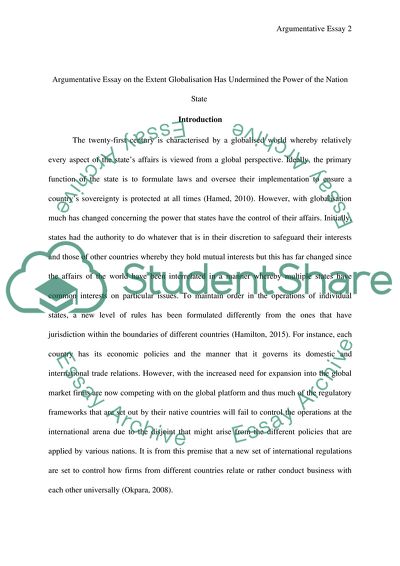Cite this document
(Extent Globalisation Has Undermined the Power of the Nation State Essay, n.d.)
Extent Globalisation Has Undermined the Power of the Nation State Essay. Retrieved from https://studentshare.org/politics/1698918-1to-what-extent-do-you-agree-that-globalisation-has-undermined-the-power-of-the-nation-state-give-evidence-to-support-your-argument
Extent Globalisation Has Undermined the Power of the Nation State Essay. Retrieved from https://studentshare.org/politics/1698918-1to-what-extent-do-you-agree-that-globalisation-has-undermined-the-power-of-the-nation-state-give-evidence-to-support-your-argument
(Extent Globalisation Has Undermined the Power of the Nation State Essay)
Extent Globalisation Has Undermined the Power of the Nation State Essay. https://studentshare.org/politics/1698918-1to-what-extent-do-you-agree-that-globalisation-has-undermined-the-power-of-the-nation-state-give-evidence-to-support-your-argument.
Extent Globalisation Has Undermined the Power of the Nation State Essay. https://studentshare.org/politics/1698918-1to-what-extent-do-you-agree-that-globalisation-has-undermined-the-power-of-the-nation-state-give-evidence-to-support-your-argument.
“Extent Globalisation Has Undermined the Power of the Nation State Essay”, n.d. https://studentshare.org/politics/1698918-1to-what-extent-do-you-agree-that-globalisation-has-undermined-the-power-of-the-nation-state-give-evidence-to-support-your-argument.


